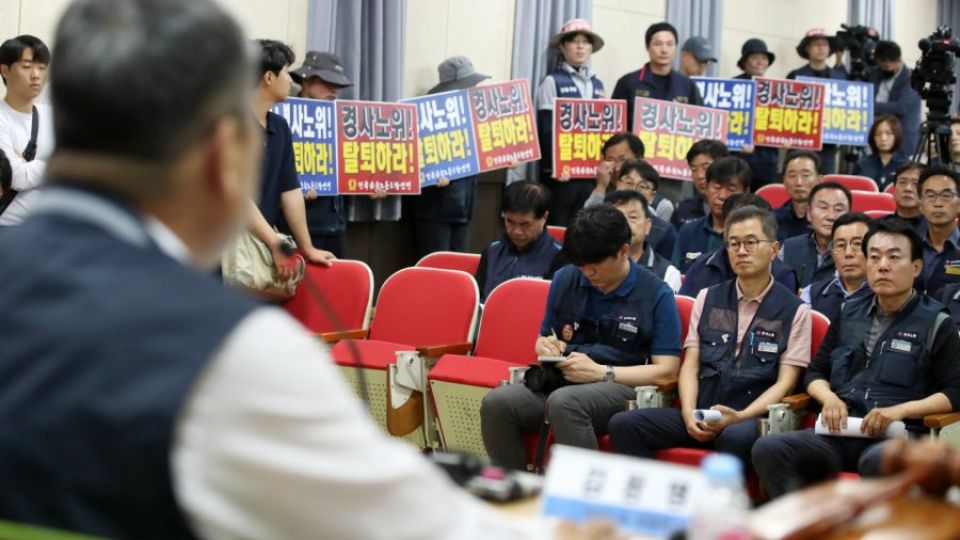June 8, 2023
SEOUL – The Federation of Korean Trade Unions, one of the two major labor umbrella groups here, announced on Wednesday it will suspend its participation in a trilateral consultative body which has served as a dialogue between labor, management and the government.
The decision, which could also affect talks over next year’s minimum wage, came in protest of the government’s use of force against one of its members, it said.
The FKTU — the more moderate umbrella labor union relative to the more militant Korean Confederation of Trade Unions — held a emergency meeting for about an hour and have reportedly decided that it is not leaving the council at this point.
But the union leadership can decide to pull out from the council at any time if it was deemed necessary, it added.
The Economic, Social and Labor Council has been a communication channel between the three parties to find consensus on controversial labor issues. The KCTU left the council in 1999.
In the absence of KCTU, the FKTU has participated in the trilateral panel on behalf of the labor community. The FKTU’s decision to leave the council would likely cut off the official communication channel between the labor community and the government, according to observers.
The decision might affect deliberations over the minimum wage for next year. The committee responsible for agreeing next year’s minimum wage, which has the same general makeup as the trilateral council, was set to meet up for a third round of negotiations Thursday.
The FKTU’s decision to leave the council would likely cut off the official communication channel between the labor community and the government, according to observers.
Later in the afternoon, the Economic, Social and Labor Council expressed regret over the union’s decision in a statement that read, “The council respects FKTU’s position, but hope it come back to the dialogue table to solve the labor reform tasks.”
“There is a saying that goes, ‘Even during war, conversation must go on.’ The council will make every effort to ensure that the dialogue between labor, management and government to resumes as soon as possible,” the statement said.
After Wednesday’s meeting, Lee Ji-hyun, a spokesperson for the FKTU, said: “We decided to fight in order to pass judgment on the Yoon Suk Yeol regime. We will hold the government accountable for its intolerable oppression against the labor community.”
The FKTU has been mulling whether to withdraw from the council since one of its members, Kim Joon-young — an executive of the Federation of Korean Metalworkers’ Trade Unions – sustained an injury from a police officer while resisting a crackdown during a sit-in rally in Gwangyang, South Jeolla Province, on May 31. The union saw it as an act of excessive oppression by the state, and announced that it would fight against the government after Kim was arrested.
It is the first time in seven years and five months that the FKTU declared its absence from the council. The FKTU left the council in protest of labor policies under the Park Geun-hye government, but later returned in October 2017 under the Moon Jae-in administration.


